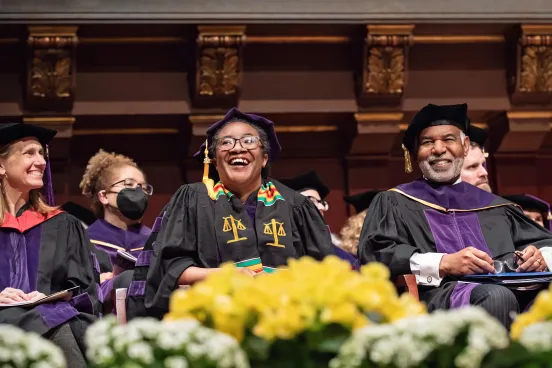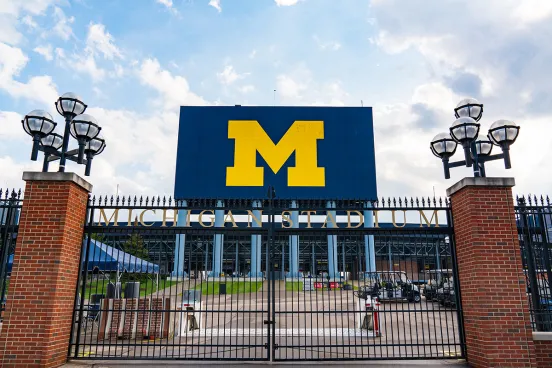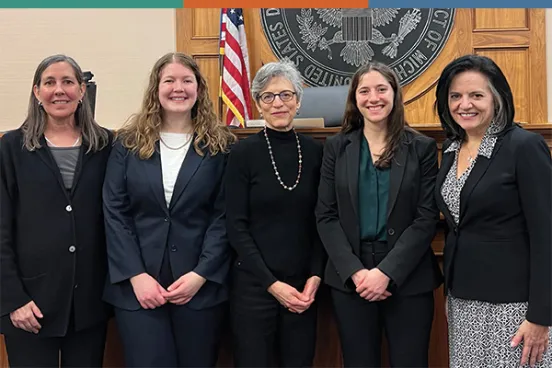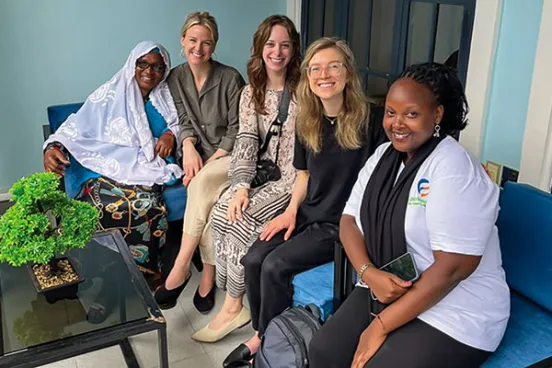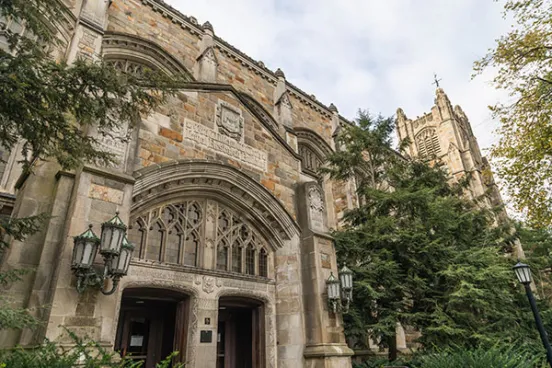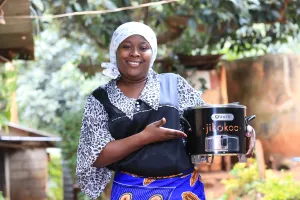
Working from their clinic in Ann Arbor, three U-M law students participated in an international transaction during the 2021–2022 academic year that will have an impact not only on the environment but on millions of people living half a world away.
And in doing so, they received real-world experience that will help guide them in their eventual careers.
“It was a level of exposure that I think is probably impossible to have gotten in a classic 10-week summer program,” says 3L Teddy Ulin of his work with Michigan Law’s International Transactions Clinic, the first of its kind and one of only two such clinics in the country.
In the end, their client, the Swiss investment advisory firm Enabling Qapital, announced a $4 million investment by Spark+ Africa Fund in BURN Manufacturing. The Kenyan company specializes in the design and manufacture of biomass, electric, and LPG cookstoves. These clean cooking stoves eliminate the need for open fires, charcoal, and kerosene, which pollute, negatively affect users’ health, and contribute to deforestation.
Ulin, along with fellow students Saika Suzuki, ’22, and Yuzhen Zhang, LLM ’22, worked with David Guenther, ’99, clinical assistant professor of law and director of the clinic, and Carl Valenstein, ’83, a Boston-based partner in the corporate and business transactions practice at Morgan Lewis Bockius, who acted as the lead attorney for the U-M team.
The students started with the program in late September 2021, first learning the fundamentals of international transactions before commencing their work with the client. At that point, Enabling Qapital had already decided to make the investment and the term sheet had been agreed upon.
“The first thing the students did was a lot of due diligence on BURN as a borrower,” says Guenther. “They explored all the kinds of things that a lender might be worried about with the borrower: the company structure, various other aspects of their business, and their capital position. So the students reviewed documents, and we helped them advise the client on ways that might affect the structure of the loan.”
The students then proceeded to draft the agreement—from scratch—and set up negotiations. This type of hands-on experience is invaluable and rare among law schools, says Valenstein, an adjunct professor who works on other projects with the clinic. “This is the equivalent of experience that a second- or third-year lawyer would have at a big firm. It’s a unique experience, one that I didn’t have when I was in law school.”
The transaction, which closed in April 2022, will enable BURN to increase the capacity of its manufacturing facility in Nairobi and finance the expansion of its business in new markets throughout Africa. The company plans to serve 47 million customers over the next seven years, which will create 2,000 jobs and offset 72 million tons of carbon dioxide—the equivalent of two million cars on the road each year.
The social justice component of the clinic is vital, says Guenther. “All of our clients in the ITC have to have a social or environmental mission.” These include poverty, adequate housing, health care, clean energy, smallholder farming, education, environmental degradation, and climate change.
But equally important is the training students receive in cross-border transactions, from drafting and negotiation to understanding international economic and financial policy, and myriad other skills.
“Both Carl and David were really, really involved in helping us with the project, but they also gave us a lot of leeway to make our own decisions and make our own mistakes,” says Suzuki. “And they really took the time to teach us through our work in the clinic.”
The time and effort was worth it, says Valenstein: “It gives me the satisfaction as a teacher to watch their growth over the course of the year.”



